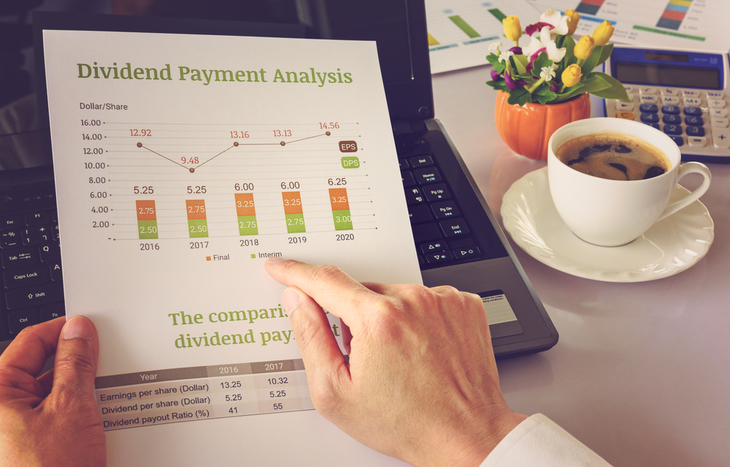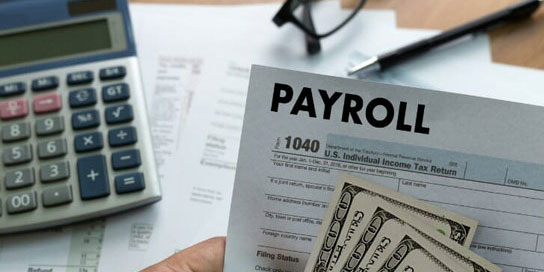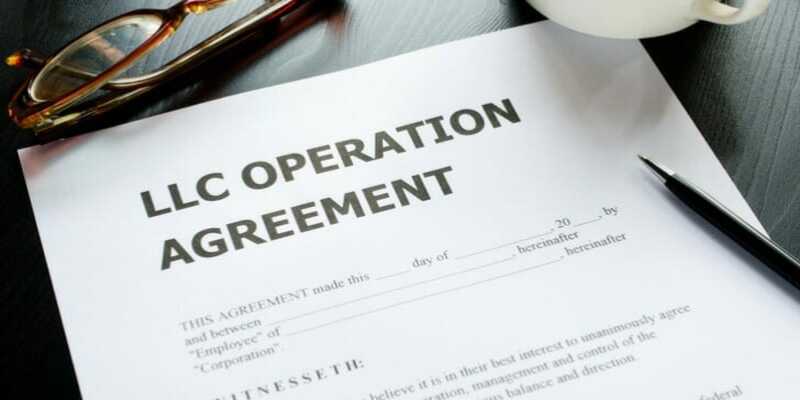You have the option of either spending the dividend money like you would any other income or reinvesting it to increase your holdings in the company or fund that issued the dividend. Though pocketing the profits as income is tempting, it's often worth putting them back into the company.
An Overview of Dividends

A business with surplus funds can do one of three things:
- Reinvest cash in operations
- Reduce its debts
- Pay a dividend to thank investors for their support.
Quarterly dividends are distributed on a per-share basis. When a firm has completed its income statement and the board of directors has reviewed the financials, the decision to pay (or not pay) a dividend is made. Any dividend declared by a firm must be paid on or before the declaration date.
Per-Share Distribution of Dividends

Investors get dividend payments based on the number of shares they own. The dividend you receive is proportional to the number of shares you hold. So, to illustrate: Let's pretend that there are 4,000,000 shares of common stock in ABC Company.
It has settled on a dividend payout of $0.50 per share. Throughout the year, ABC distributes a total of $2,000,000 in dividends. The dividend for 100 shares of ABC stock is $50. Put another way; if you own 1,000 shares, you'll have to fork over $500.
How Does Dividend Reinvestment Work?
Dividend reinvestment is purchasing new shares with a dividend payment rather than cashing them out. Consider dividend reinvestment as a viable investing strategy since it is:
Cheap:
Automatic reinvestment means you won't have to pay commissions or other brokerage costs to acquire new shares.
Convenient:
Once activated, dividend reinvestment occurs automatically.
Flexible:
You may purchase fractional shares through dividend reinvestment even though most brokers won't.
Consistent:
As you get dividends, you routinely put that money toward purchasing shares. This is an example of the use of dollar-cost-averaging (DCA).
The power of compound interest may significantly increase your long-term earnings if you reinvest your income. Your dividends can be used to purchase further shares, which raises your premium for the next period.
Funds For Reinvestment of Dividends
Earnings from dividends are yours to do with as you like. However, many businesses provide DRIPs that streamline the procedure. A DRIP will automatically purchase additional shares for you using the tips you get. Among the many advantages of DRIPs are:
- Stock price discounts
- Without the need to pay a commission on purchases
- Equivalent shares
Reinvesting dividends is a great way to build wealth since it does so without paying attention. After retirement, you'll have that investment income waiting for you after more funds are needed.
An Example of Growth from Reinvestment
Let's pretend that ABC Company offers a paltry dividend of 50 cents. For the argument, let's say the stock price rises by 10% a year, and the dividend rate rises by 5% annually. For $20 a share, your $20,000 investment will get you 1,000 shares.
Your $22.05 dividend payment will now purchase $22.73 worth of stock if you want to reinvest it. Fractional shares are widespread in DRIPs, but you can't acquire them on the open market. A 55 cents per share dividend is paid out after the second year.
Cash or Reinvested Dividends
Let's pretend ABC's stock price maintains its stability and the firm keeps increasing its dividend by the same amount yearly.
Twenty years from now, you would have accumulated 1,401.25 shares worth $188,664.30 and received a dividend of $2,031.82.
You would have received an additional $24,367.68 in dividends if you had cashed out instead of reinvested your payments. Unfortunately, you would only have 1,000 shares at this time, which is just $134,640 in value. It is estimated that annual dividend reinvestment may enhance returns by 47%.
When Should Dividends Not Be Reinvested?
There are scenarios where receiving dividends in cash is preferable to reinvesting them. There are times when it makes more sense to cash out than reinvest, such as when you are nearing retirement and need the money, when a company or fund is underperforming, when you wish to increase your portfolio's diversity, or when your portfolio is already unbalanced.
Suppose your portfolio is overexposed to a small number of stocks, and those securities underperform the market. In that case, you will suffer more losses than you would if your portfolio were more evenly distributed.
The Conclusion
If you reinvest your dividends instead of spending them, your investment might increase more quickly than if you did the latter. Additionally, it is low-priced, simple, and adaptable. Dividend reinvestment is a popular strategy, but it isn't always the best option for investors. If you have any questions or worries about reinvesting your income, it's a good idea to talk to a knowledgeable financial counselor.







